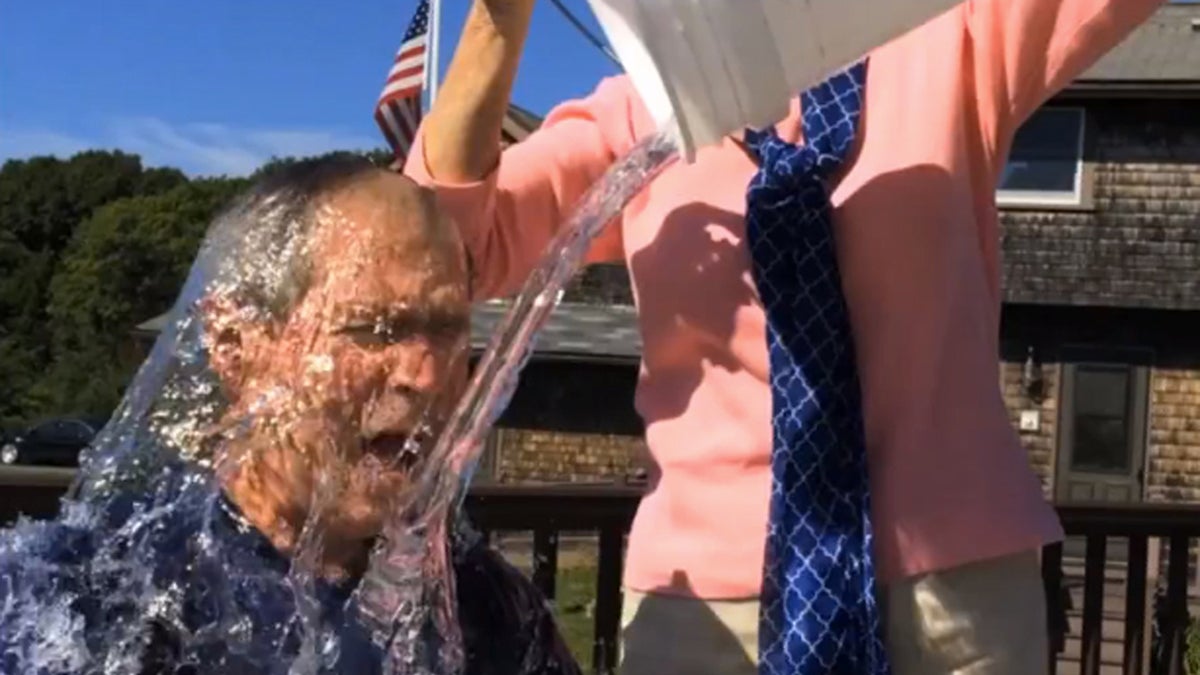$22 million just a drop in the ice bucket for ALS research
Listen
In this image from video posted on Facebook
Bill Gates has done it. Oprah, Conan O’Brian, LeBron James and Mark Zuckerberg have done it. Everywhere, people famous and not so famous are dumping ice water on their heads.
It’s a campaign turned viral sensation to raise money for ALS, also known as Lou Gehrig’s disease. It works like this: People dump water on their heads, give money to the ALS foundation, and make videos of themselves where they challenge others to do the same. The effort is getting both cheers and jeers. “This campaign is particularly annoying,” said Wharton marketing professor Deborah Small who has admits she has a bit of ice bucket fatigue. Her Wharton colleague Leonard Lodish disagrees. “Nobody has been hurt, nobody has done anything unethical immoral or wrong, and there has been a lot of good that’s happened!” With over $22 million raised in about three weeks, Deborah Small knows that campaign has been a huge success, but she says it still leaves a bad taste in her mouth. “It kind of trivializes the cause, and it makes it a joke and a gimmick.”
An especially cruel disease
ALS is a neurodegenerative disease that slowly and cruelly robs people of their bodily functions. It kills nerve cells in the brain and spinal cord that are responsible for voluntary muscle control. Patients experience progressive weakness, they lose the ability to move, to swallow, to breathe. So – ice buckets and screeching aside for a moment – where does research stand?
We sat down with Leo McClusky, Medical Director of Penn’s ALS Center, to gauge the scope of ALS research.
Cure is far away
According to McCluskey, research is progressing, but not speedily. “We’re a lot smarter than we used to be, but we need to be a lot smarter than that.”
At this point, treatment methods have hit a plateau. “Unfortunately we only have one drug. It doesn’t work very well.” He says the drug, riluzole, has been out since the 90s, and despite numerous clinical trials, a viable alternative still hasn’t been found. In fact, the situation puts curing the disease at a distance, with slowing it down a more immediate goal. “That’s what we actually hope for at this point. Cure is a very large word in this disease at the moment. We’re looking for a drug that robustly slows the disorder down.”
And what about all of those Ice Bucket Challenge donations? They’re helping, but donations can only go so far. “I wish I could say for sure that amount of money is going to solve this disease. I think it’s going to take more than that.”
But McCluskey notes an added benefit to the challenge: a surge in awareness. “I truly hope that it persists, that this doesn’t sort of lag off into the sunset and we’ll be back to the funding levels we were at last year.”
McCluskey also noted that ALS researchers work together with researchers exploring other neuro-degenerative diseases such as Parkinson’s and Alzheimer’s. They share data bases, genetics research and so on, so he hopes that working in tandem could help produce results more quickly.
WHYY is your source for fact-based, in-depth journalism and information. As a nonprofit organization, we rely on financial support from readers like you. Please give today.




